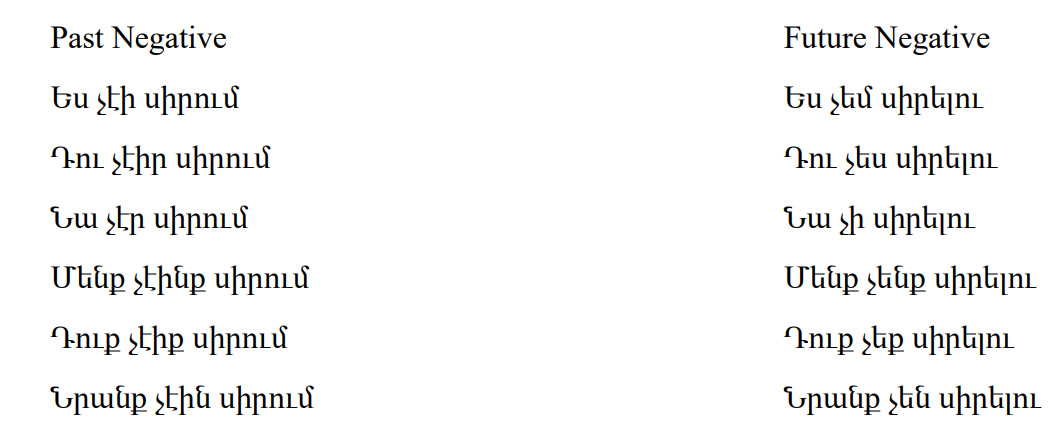Difference between revisions of "Language/Armenian/Vocabulary/Vocabulary-for-the-Future-Indicative"
(Created page with "thumb <div style="font-size:300%> Vocabulary for the Future Indicative in Armenian</div> Tense մեկ ժամ հետո - after on...") |
m (Quick edit) |
||
| Line 48: | Line 48: | ||
==Sources== | ==Sources== | ||
https://slaviccenters.duke.edu/sites/slaviccenters.duke.edu/files/handbook_of_armenian.pdf | https://slaviccenters.duke.edu/sites/slaviccenters.duke.edu/files/handbook_of_armenian.pdf | ||
==Related Lessons== | |||
* [[Language/Armenian/Vocabulary/Computer|Computer]] | |||
* [[Language/Armenian/Vocabulary/City|City]] | |||
* [[Language/Armenian/Vocabulary/Days-of-the-week|Days of the week]] | |||
* [[Language/Armenian/Vocabulary/Months-of-the-Year|Months of the Year]] | |||
* [[Language/Armenian/Vocabulary/Nature|Nature]] | |||
* [[Language/Armenian/Vocabulary/Geometry|Geometry]] | |||
* [[Language/Armenian/Vocabulary/Games-and-Toys|Games and Toys]] | |||
* [[Language/Armenian/Vocabulary/At-the-Post-Office|At the Post Office]] | |||
* [[Language/Armenian/Vocabulary/Frequently-Used-Verbs|Frequently Used Verbs]] | |||
* [[Language/Armenian/Vocabulary/Colors|Colors]] | |||
Revision as of 13:33, 26 February 2023
Tense մեկ ժամ հետո - after one hour
երկու ժամ հետո - after two hours
մեկ ժամից - in an hour
երկու ժամից - in two hours
վաղը - tomorrow
վաղը չէ, մյուս օրը - the day after tomorrow
հաջորդ շաբաթ - next week
երկու շաբաթ հետո - after two weeks
երկու շաբաթից - in two weeks
հաջորդ ամիս - next month
չորս ամիս հետո - after four months
չորս ամսից - in four months
հաջորդ տարի - next year
եկող տարի - next year, upcoming year
(եկող) փետրվարի 4-ին - on (upcoming) February 4
As we are now used to, the negative forms of both the past progressive and future tenses are formed by bringing the negative auxiliary verb before the verb itself. Here is “սիրել” conjugated in the past and future negative:
Both in past progressive and in future indicative tenses the interrogative is formed by placing the question mark on the last vowel of the verb.
Obviously there may be negative questions as well. Here are two examples:
1) Աշնանը նրանք չէին աշխատու՞մ։ Did not they used to work in fall?
2) Գարնանը մենք չենք խոսելու՞։ Aren’t we going to speak in spring?
As each personal pronoun has its special auxiliary, the pronoun may be omitted. “I bring bread” can be translated both as “Ես հաց եմ բերում։” and “Հաց եմ բերում։” “You are going to bring bread” can be translated both as “Դու հաց ես բերելու:” and “Հաց ես բերելու։” “She was bringing bread.” can be translated both as “Նա հաց էր բերում։” and “Հաց էր բերում։”
Sources
https://slaviccenters.duke.edu/sites/slaviccenters.duke.edu/files/handbook_of_armenian.pdf



